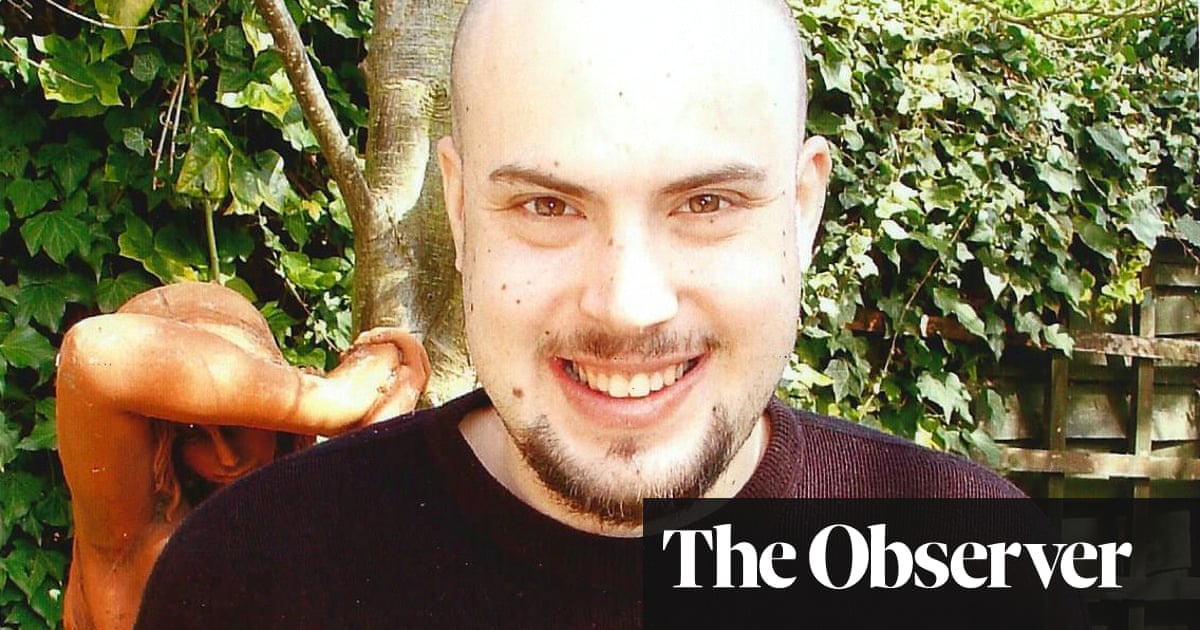
Three teenage girls died after major failings in the care they received from NHS mental health services in the north-east of England, an independent investigation has found.
“Multifaceted and systemic” failures by the Tees, Esk and Wear Valleys (TEWV) NHS trust contributed to the young women’s self-inflicted deaths within eight months of each other, it concluded.
Christie Harnett died aged 17 on 27 June 2019 at the trust’s West Lane hospital in Middlesbrough. Nadia Sharif, also 17, died there six weeks later, on 5 August. Emily Moore, who had been treated there, died on 15 February 2020 at a different hospital in Durham. All three had complex mental health problems and had been receiving NHS care for several years.
The investigation into their deaths, commissioned by the NHS, found that 119 “care and service delivery problems” by NHS services, especially TEWV, had occurred.
Charlotte and Michael Harnett, Christie’s parents, said their daughter had “lost her life whilst in a hospital run by TEWV trust where there was little or no care or compassion”. Emily’s parents, David and Susan Moore, said she received “horrific care” while at West Lane. Services at the hospital were understaffed, “unstable and overstretched”, the investigation’s final report found.
Both families, and also Nadia’s parents, Hakeel and Arshad Sharif, said the dangerous inadequacy of the care provided by TEWV, and the likelihood that other patients with fragile mental health had died as a result, showed that ministers should order a full public inquiry. “This mental health trust is a danger to the public,” the Moores said.
The report said TEWV failed to properly monitor the girls, given their known risk of self-harm; to take seriously concerns about their care and suicide risk raised by their families; and to remove all potential ligature points.
The investigation, carried out by the Niche specialist health and care consultancy, found that “it was the organisational failure to mitigate the environmental risks of self-ligature, accompanied by Christie’s increasing risk and changed presentation because of her recent move to her own home not being fully recognised, and the unstable and overstretched services in West Lane hospital, that were the root causes of Christie’s death.” It involved 49 separate failings.
The report, published on Wednesday, found that very similar failures were “the root causes” of Nadia’s death, though in her case they included “Nadia’s increasing risks, individual needs and changed presentation not being recognised”. Her death involved 46 separate failings.
The failings at West Lane were “multifaceted and systemic” in both cases, Niche found.
The inquiry found that in Emily’s death, “the issues at West Lane cannot be seen to have been immediate contributory factors in her death” as she had left the facility seven months before she died. However, the 24 “care and service delivery problems” by various NHS bodies in her case included staff at West Lane failing to respond properly to concerns raised by her father.
“These reports are damning,” said Alistair Smith, of the solicitors Watson Woodhouse, who are representing the three families. He described the girls’ care as “appalling and chaotic”. Recent inspection reports by the Care Quality Commission (CQC), the NHS care watchdog, showed that TEWV was still giving poor care, he added. “Lessons are not being learned.” The CQC is prosecuting the trust for allegedly exposing Christie to “significant risk of avoidable harm”.
Inquests into the deaths have been opened and paused pending the publication of the report. The families are also suing the trust for breach of civil rights and negligence.
West Lane was closed in 2019 after the deaths of Christie and Nadia. However, it reopened last year under the new name Acklam Road hospital and is being run by a different mental health trust.
“On behalf of the trust, I would like to apologise unreservedly for the unacceptable failings in the care of Christie, Nadia and Emily,” said Brent Kilmurray, TEWV’s chief executive. “The girls and their families deserved better while under our care.”
However, the families dismissed letters of apology they recently received from Kilmurray as “nothing more than an 11th-hour PR exercise”, and said they did not accept his apology.
Margaret Kitching, NHS England’s chief nurse for the north-east and Yorkshire, said: “These reports make for difficult reading and our thoughts are with the families of these three young people. We have put measures in place to protect patients while we support the trust in making the comprehensive programme of improvements at every level from its wards to its boardroom.”












